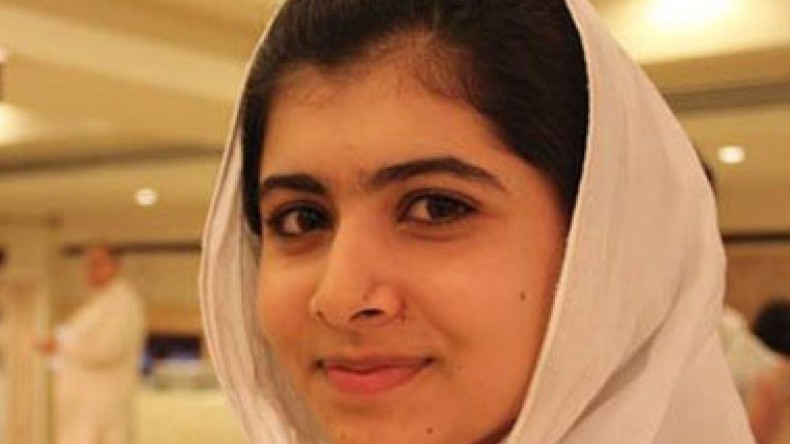
Reunited with her family, Malala's prognosis is good
The father of the Pakistani teen whose love of learning led the Taliban to shoot her expressed gratitude Friday for the help she has received, CNN reported.
"Last night when we met her, there were tears in our eyes and they were out of happiness, out of happiness," Ziauddin Yousufzai told reporters at Queen Elizabeth Hospital Birmingham the morning after reuniting with his 15-year-old daughter, Malala.
Malala was flown to the British facility on October 15 -- six days after being shot in the head at point-blank range while on her way home from school.
Yousufzai described his daughter's survival as a "miracle for us" and choked up as he recalled having started at one point to think about planning her funeral.
"She is not just my daughter, she is the daughter of everyone, she is the sister of everyone," Yousufzai said, speaking a day after he, his wife and two sons arrived in Birmingham, England, to see her.
Yousufzai spoke of how Malala had become an education rights activist at an early age, and in so doing had become an international symbol of courage.
He said he is "thankful to the media of Pakistan ... because it is very difficult to stand by a girl who stands up against terrorism. ... They were warned by the terrorists but still they kept on supporting my daughter."
He also expressed gratitude to the British and Pakistani governments, the latter of which is paying for her treatment. And he thanked medical teams in both countries for the care they have provided. "She got the right treatment, at the right place, at the right time," he said.
Yousufzai, who was accompanied at the news conference by Malala's 12-year-old brother, detailed the days since Malala was shot in her hometown of Swat.
She was initially taken to an area hospital, then transferred to a hospital in Peshawar and on to Islamabad, undergoing surgery to remove part of her skull so that her injured brain could swell unimpeded.
By the time Malala was flown to Britain, doctors had placed her in a medically induced coma.
"She was in a very bad condition," her father said.
"She is lucky to be alive," Dr. Dave Rosser, the medical director of University Hospitals Birmingham, told reporters.
But he described Malala's prognosis as "excellent."
She does not appear to have suffered significant brain damage, he said. "There's no real areas of concern, at this stage," he added.
Newsfeed
Videos






























